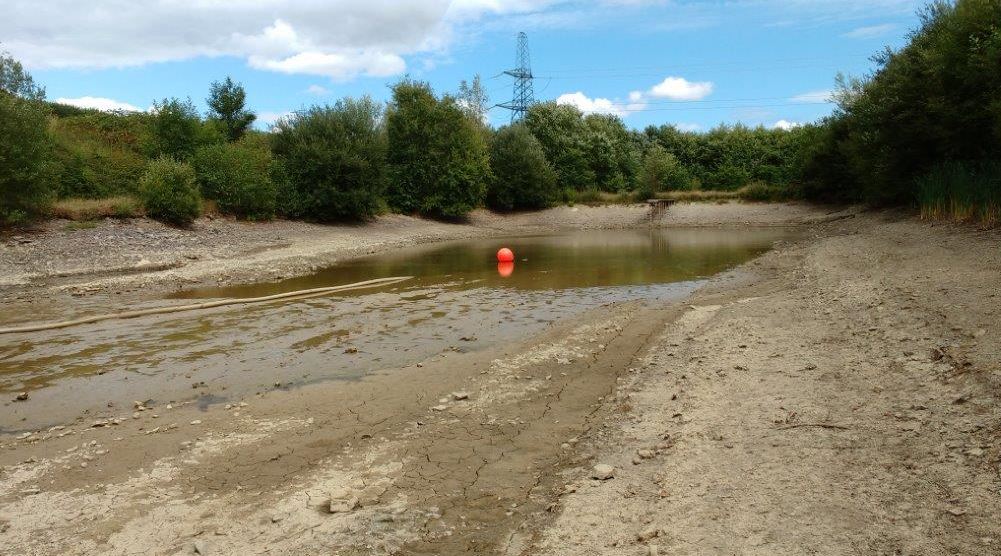In the 1960s, as a fresh-faced new farmer embracing all things modern, my father installed irrigation in his pastures to ensure a supply of fresh grass for his cows through dry summers. But the futility of making rain, which falls so effortlessly – if irregularly – on its own, soon defeated him.
Unlike Jean de Florette (the farmer in the eponymous French film who was driven to an early death in search of water for his crops), he bore the defeat well, and his cows seemed none the worse for it. The pump and pipes disappeared under brambles until the 1980s, when, as a fresh-faced new veg grower, I dug them out to irrigate my parched lettuces.
In the absence of protective controls to shut the system off automatically when it ran out of water, I slept by the tractor, which drove the pump, to be awoken by the change in tone when it ran dry. It was a miserable existence.
The licence to draw water from a small stream, taken out in the 1960s, has since been supplemented by six winter-fill reservoirs, holding 40,000m3, with underground mains and electric pumps, sophisticated controls, and UV filters to ensure that the water is free of coliform bacteria. Only in two of our 35 summers have we not had enough water to keep crops growing; with no rain forecast in the south for a month or more, this looks like being the third.
We have just enough water for the high value, shallow-rooting, drought-susceptible lettuces, salad leaves and radishes, plus the tomatoes, cucumbers and basil in our polytunnels. Everything else will have to root for itself. The summer cabbages have stopped growing, and there are still plenty of artichokes for our boxes so far, but supply will deteriorate over the next month.
We are already seeing some quality issues from moisture stress as sweetcorn, courgettes and salad veg, already stressed at harvest, lose more moisture on their way to you. A good tip at this time of year (from my mother-in-law, Liz) is to dampen, or even soak, your leafy veg for a few minutes before wrapping them in a damp paper bag in your fridge.
On our French farm, we have just completed a new 50,000m3 reservoir. In Devon, Raph, our long-standing, wood-dwelling cosmic advisor and co-owner, is doing his rain dance – but in the longer term, as summers become drier and hotter, and rain less predictable, we definitely need to invest in more reservoirs, pumps and pipes here as well.













Interesting, very interesting. So many have been ‘banging on about’ Climate Change and Global Warming for a while now but it seems that a lot of it from all angles has either fell on deaf ears or the prophets of doom are not saying the right words? Thus it appears there are those of us who – it would appear – have been caught with their ‘pants down’.
Let us all hope that both the weather forecast is wrong (doubtful) and that many will heed the warnings that this gives us – I’m sure it will! It has too or the so called ‘seven years of bad times’ forecast sometime back (mor’n 2000 years) may be coming in faster than thought!
The Walrus
Just oh so glad we have invested in a 5,000 litre rainwater harvesting underground tank. This contains a submersible pump feeding a ‘smart’ header tank in the loft. I.e. it has low and high level switches to start and stop the pump. Rainwater is then gravity fed to the toilets and pumped to the washing machine and front and back garden taps. Mercifully here in N Derbyshire we have had several rainy nights to top it up. But at least when the hosepipe bans come we can legally save our veg and fruit.
Also an older relative used to say re toilet, “If it’s yellow let it mellow, if it’s brown flush it down.” If only everyone did this we would save huge amounts of energy as well as water, as water treatment is incredibly carbon intensive.
And you should know that even once-a-week use of chlorine bleach causes a 30% increased risk of developing COPD.
I do agree with Walrus, there’s none so deaf as those who won’t hear.
Denby
I wonder if the answer (of one of the potentials) is to adapt to the lack of water through changing the crops that we are so reliant on and used to. I’m working on an organic farm and I see the concern over drought, and the volume of water required. I have been reading a lot by Martin Crawford, and I see the many benefits to perennial vegetables, roots, leaves, berries, legumes etc in a food forest type system. Perhaps combined with some annuals. True that it would require a real change in the mindsets and diets of people, but perhaps this is what we need in order to manage this dryer weather moving forwards.
Im afraid climate change is a process, not an event and so it’s set to get much worse. Adaptation will involve changing what we eat. I have not watered my brassicas all through the drought and they look amazingly good. Apples are good, leeks too, some pear trees have dropped all their leaves, hazels too. Spinach and Brussels doing well with only a little water. I have learned that I water too much.
Then there is the wildlife and the habitats. Meanwhile, serious powerful politicians think they will win votes by expanding GDP. I fear for next year. The next generation? I can hardly look them in the eye!